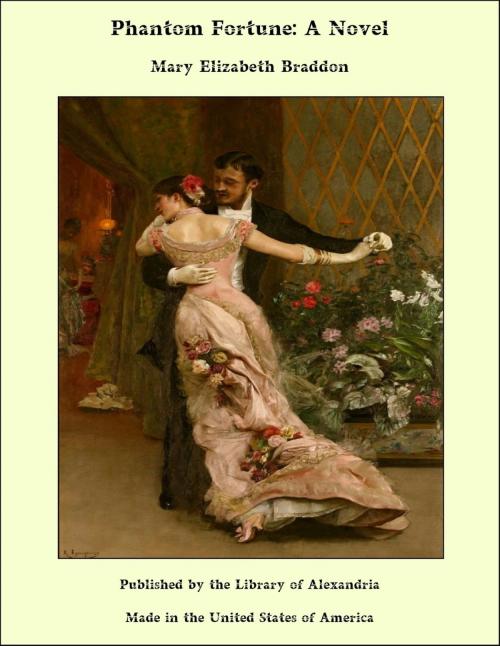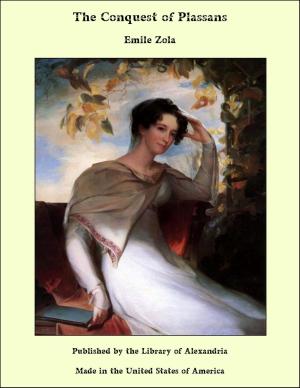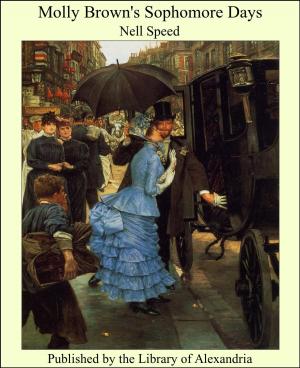Phantom Fortune: A Novel
Nonfiction, Religion & Spirituality, New Age, History, Fiction & Literature| Author: | Mary Elizabeth Braddon | ISBN: | 9781465605467 |
| Publisher: | Library of Alexandria | Publication: | March 8, 2015 |
| Imprint: | Language: | English |
| Author: | Mary Elizabeth Braddon |
| ISBN: | 9781465605467 |
| Publisher: | Library of Alexandria |
| Publication: | March 8, 2015 |
| Imprint: | |
| Language: | English |
People dined earlier forty years ago than they do now. Even that salt of the earth, the elect of society, represented by that little great world which lies between the narrow circle bounded by Bryanstone Square on the north and by Birdcage Walk on the south, did not consider seven o'clock too early an hour for a dinner party which was to be followed by routs, drums, concerts, conversazione, as the case might be. It was seven o'clock on a lovely June evening, and the Park was already deserted, and carriages were rolling swiftly along all the Westend squares, carrying rank, fashion, wealth, and beauty, political influence, and intellectual power, to the particular circle in which each was destined to illumine upon that particular evening. Stateliest among London squares, Grosvenor—in some wise a wonder to the universe as newly lighted with gas—grave Grosvenor, with its heavy old Georgian houses and pompous porticoes, sparkled and shone, not alone with the novel splendour of gas, but with the light of many wax candles, clustering flower-like in silver branches and girandoles, multiplying their flame in numerous mirrors; and of all the houses in that stately square none had a more imposing aspect than Lord Denyer's dark red brick mansion, with stone dressings, and the massive grandeur of an Egyptian mausoleum. Lord Denyer was an important personage in the political and diplomatic world. He had been ambassador at Constantinople and at Paris, and had now retired on his laurels, an influence still, but no longer an active power in the machine of government. At his house gathered all that was most brilliant in London society. To be seen at Lady Denyer's evening parties was the guinea stamp of social distinction; to dine with Lord Denyer was an opening in life, almost as valuable as University honours, and more difficult of attainment. It was during the quarter of an hour before dinner that a group of persons, mostly personages, congregated round Lord Denyer's chimney-piece, naturally trending towards the social hearth, albeit it was the season for roses and lilies rather than of fires, and the hum of the city was floating in upon the breath of the warm June evening through the five tall windows which opened upon Lord Denyer's balcony. The ten or twelve persons assembled seemed only a sprinkling in the large lofty room, furnished sparsely with amber satin sofas, a pair of Florentine marble tables, and half an acre or so of looking glass. Voluminous amber draperies shrouded the windows, and deadened the sound of rolling wheels, and the voices and footfalls of western London. The drawing rooms of those days were neither artistic nor picturesque—neither Early English nor Low Dutch, nor Renaissance, nor Anglo-Japanese. A stately commonplace distinguished the reception rooms of the great world. Upholstery stagnated at a dead level of fluted legs, gilding, plate glass, and amber satin.
People dined earlier forty years ago than they do now. Even that salt of the earth, the elect of society, represented by that little great world which lies between the narrow circle bounded by Bryanstone Square on the north and by Birdcage Walk on the south, did not consider seven o'clock too early an hour for a dinner party which was to be followed by routs, drums, concerts, conversazione, as the case might be. It was seven o'clock on a lovely June evening, and the Park was already deserted, and carriages were rolling swiftly along all the Westend squares, carrying rank, fashion, wealth, and beauty, political influence, and intellectual power, to the particular circle in which each was destined to illumine upon that particular evening. Stateliest among London squares, Grosvenor—in some wise a wonder to the universe as newly lighted with gas—grave Grosvenor, with its heavy old Georgian houses and pompous porticoes, sparkled and shone, not alone with the novel splendour of gas, but with the light of many wax candles, clustering flower-like in silver branches and girandoles, multiplying their flame in numerous mirrors; and of all the houses in that stately square none had a more imposing aspect than Lord Denyer's dark red brick mansion, with stone dressings, and the massive grandeur of an Egyptian mausoleum. Lord Denyer was an important personage in the political and diplomatic world. He had been ambassador at Constantinople and at Paris, and had now retired on his laurels, an influence still, but no longer an active power in the machine of government. At his house gathered all that was most brilliant in London society. To be seen at Lady Denyer's evening parties was the guinea stamp of social distinction; to dine with Lord Denyer was an opening in life, almost as valuable as University honours, and more difficult of attainment. It was during the quarter of an hour before dinner that a group of persons, mostly personages, congregated round Lord Denyer's chimney-piece, naturally trending towards the social hearth, albeit it was the season for roses and lilies rather than of fires, and the hum of the city was floating in upon the breath of the warm June evening through the five tall windows which opened upon Lord Denyer's balcony. The ten or twelve persons assembled seemed only a sprinkling in the large lofty room, furnished sparsely with amber satin sofas, a pair of Florentine marble tables, and half an acre or so of looking glass. Voluminous amber draperies shrouded the windows, and deadened the sound of rolling wheels, and the voices and footfalls of western London. The drawing rooms of those days were neither artistic nor picturesque—neither Early English nor Low Dutch, nor Renaissance, nor Anglo-Japanese. A stately commonplace distinguished the reception rooms of the great world. Upholstery stagnated at a dead level of fluted legs, gilding, plate glass, and amber satin.















